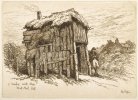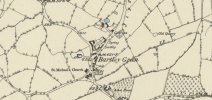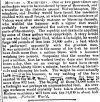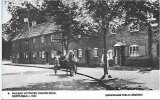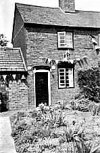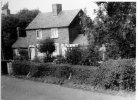Great glimpse of family and industrial history there. Thanks for posting. Viv.
-
Welcome to this forum . We are a worldwide group with a common interest in Birmingham and its history. While here, please follow a few simple rules. We ask that you respect other members, thank those who have helped you and please keep your contributions on-topic with the thread.
We do hope you enjoy your visit. BHF Admin Team
You are using an out of date browser. It may not display this or other websites correctly.
You should upgrade or use an alternative browser.
You should upgrade or use an alternative browser.
Nailers and nailmaking
- Thread starter jane k
- Start date
There would have been travellers to the village, knife grinders for example, who would pass on information. Any information from the church is likely to have been "sanitized" to what was acceptable news. There used to be a website to the magazine "Birmingham historian",, which had a download of an article "Nailmakers of Harborne". this stated that in the later 19th century there was no longer a local nailmaster in the village who bought the nailmaker's nails, and so the nailers would travel once a week into Birmingham to sell their nails. this would have given then an opportunity to hear the news. Presumably the same happened in Bartley Green
strange you mention knife grinders mike as i am just researching the cutler family for my grandson james...from at least 1851 they were living in the bartley green northfield area and down the years all of the family were nailers so there must have been a large nailing industry around those parts
lyn
LindaCorby
New Member
On my paternal family tree is a branch whose name is Priest who lived in Rowley Regis area. My 4 x grandfather is Benjamin Priest and his wife Sophie. The 1861 census has their occupations when they were in their 60s as nailmakers.
The whole family seems to have been in the nail and chain making industry for several generations.
One of their sons, also named Benjamin, obviously prospered and founded a company in Old Hill. A couple of adverts for his company are attached.
View attachment 156148 View attachment 156149
They were still going in the 1980s but I don't know if they are now.
In this case, we are related, I am the Granddaughter of Benjamin Priest ( The Old Hill one) & you are Black Country, not a Brummy, our company Nuts Bolts, Scaffolding, etc. My father Cecil Jackson brought the company back from near bankruptcy due to my grandfather's death duties.. My son Benjamin passed in 1976 and Dad passed 1977, the company is sadly no more. My second Grandson's middle name is Ben, if the name continues after that I have no idea?On my paternal family tree is a branch whose name is Priest who lived in Rowley Regis area. My 4 x grandfather is Benjamin Priest and his wife Sophie. The 1861 census has their occupations when they were in their 60s as nailmakers.
The whole family seems to have been in the nail and chain making industry for several generations.
One of their sons, also named Benjamin, obviously prospered and founded a company in Old Hill. A couple of adverts for his company are attached.
View attachment 156148 View attachment 156149
They were still going in the 1980s but I don't know if they are now.
LindaCorby
New Member
In this case, we are related, I am the Granddaughter of Benjamin Priest ( The Old Hill one) & you are Black Country, not a Brummy, our company Nuts Bolts, Scaffolding, etc. My father Cecil Jackson brought the company back from near bankruptcy due to my grandfather's death duties.. My son Benjamin passed in 1976 and Dad passed 1977, the company is sadly no more. My second Grandson's middle name is Ben, if the name continues after that I have no idea?
A colorful tirade from the Black Country Muse, on the predations of the nail factors, and the plight of the nail makers they exploited:
https://blackcountrymuse.webs.com/nailmaking
My 3 x great grandfather, Joseph Jukes, was one such nail factor in West Bromwich in the 1840s, and his father James had a nail shop in Dudley some 40 years previous.
A court report from Aris' Birmingham Gazette indicates that Joseph got up to at least some of the nefarious tricks ascribed to the nail factor's trade - in this case a rigged set of weights and scales, used to short-change his workers for the weight of nails they produced.
https://blackcountrymuse.webs.com/nailmaking
My 3 x great grandfather, Joseph Jukes, was one such nail factor in West Bromwich in the 1840s, and his father James had a nail shop in Dudley some 40 years previous.
A court report from Aris' Birmingham Gazette indicates that Joseph got up to at least some of the nefarious tricks ascribed to the nail factor's trade - in this case a rigged set of weights and scales, used to short-change his workers for the weight of nails they produced.
mw0njm.
A Brummie Dude
THE WEST MIDLANDS NAIL TRADE
Bromsgrove and Stoke Prior together with surrounding villages engaged in nailmaking. There's a nailshop (darg) at Avoncroft. https://bromsgrovenailmaking.wixsite.com/nail-making/untitled-c139r (Not sure who put this together )
Richard Dye
master brummie
Very good article! I have followed something similar in the New England states. Massachusetts, Connecticut, Rhode Island and New Hampshire many of which were settled by British or as some would say: Englanders!THE WEST MIDLANDS NAIL TRADE
Richard Dye
master brummie
Very revealing article, particularly the middle man who is still alive and well today! In fact they made a good part of the profits for vey little investment!Bromsgrove and Stoke Prior together with surrounding villages engaged in nailmaking. There's a nailshop (darg) at Avoncroft. https://bromsgrovenailmaking.wixsite.com/nail-making/untitled-c139r (Not sure who put this together )
I would not have been so sure that they could not read. Male literacy jumped from 69.3% in 1851 to 97.2% in 1900. Female literacy rates went from 54.8% in 1851 to 96.8% in 1900. Not far off the rate today. Lots of this was driven by the "Sunday School" movement of classes on a Sunday. It was also driven by the flourishing of Methodist and other "chapel" religions that encouraged reading, if only so that you could read the Bible. Bartley Green did not have a chapel, but it was surrounded by hamlets that did, - California, and Woodgate for example. The nearby Dudley No 2 canal through the Lapel tunnel would have brought a steady flow of visitors nearby, the horses would have been taken down Clapgate lane while the boats were legged through the tunnel. No doubt you could have picked up the news from the pubs that served the canal. The late 1800s saw the flourishing of local newspapers and by 1900 Bartley Green had a post office that no doubt would have stocked them. The inhabitants would have been much more likely to go to market in Halesowen than Birmingham, and they would have been more likely to read newspapers and news-sheets from Halesowen and the Black Country (it was only in 1911 that Bartley Green left Worcestershire to become part of Birmingham). Halesowen had a railway station from 1878. From what I understand, nail-making in small villages like Bartley Green had become a winter occupation by the late 1800s. Automation had made hand-made nails largely uneconomic so those that remained in the trade worked on farms during the summer (and there were plenty of big farms around Bartley Green) and only returned to nail-making during the winter months or evenings to make extra income, although they were still proud of their trade and gave their profession as nailmaker on the census. With its own pub, post office, school and small posh house (Athol House), by the late 1800s Bartley Green was getting to be a bit more like "Candleford" than "Lark Rise".I have a number of ancestors, male and female, who were nailers in the Bartley Green area in the late 1800's. In fact most of the villagers seemed to be nailers. They worked many hours. With no TV, radio etc and probably unable to read how did they know what was going on in the world? They must surely have known about Parliament, the Monarch etc so where did they get the information to pass on? Did it come from the church that they probably visited on Sundays?One family left for a life in North America.
Suggestions please.
Thanks
Dave
Attachments
Janet Hunt
master brummie
This is quite interesting about black country nail makers. Should imagine it was pretty much the same in Birmingham.
Thank you to 3 contributors to very interesting links on Nail Making in West Midlands in 1800's. A few years ago I visited the preserved working Nail Shop at the Black Country Living Museum near Tipton and Dudley . Originally it was sited in Halesowen in West Midlands in 1880.
My maternal great grandmother worked as a Nailer at the age of 13 in Sedgley in 1861 and was one of 13 children . Her father was a Screw Forger in Sedgley in 1851-1861 and her mother was a Tailoress as well as her older sister. The type of nails made in Sedgley were Gate Nails and Rose Head Nails. Small nails were produced at 4 nails per minute or up to 250 per hour and cost 4s 9d per 1000 nails. The nail industries at the time were centred along the Rivers Stour, Tame and Severn including Sedgley Stourbridge Dudley and Birmingham
My maternal great grandmother worked as a Nailer at the age of 13 in Sedgley in 1861 and was one of 13 children . Her father was a Screw Forger in Sedgley in 1851-1861 and her mother was a Tailoress as well as her older sister. The type of nails made in Sedgley were Gate Nails and Rose Head Nails. Small nails were produced at 4 nails per minute or up to 250 per hour and cost 4s 9d per 1000 nails. The nail industries at the time were centred along the Rivers Stour, Tame and Severn including Sedgley Stourbridge Dudley and Birmingham

